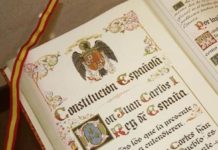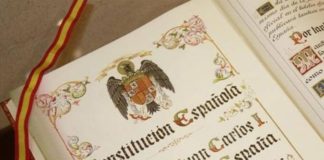LUKEN ETXABE.
When we the Basques speak of independence, Ireland is usually the first nation coming to mind. We share common traits in some way, i.e. we both have a minorized language, our Country is divided into two parts, an armed organization, etc. But would we really wish to model ourselves after Ireland in order to guarantee our identity or nation? This is the question addressed in this article.
Almost 100 years are gone since the south of Ireland gained independence from Great Britain, dated on 13 May 1921. From that day on, the island of Ireland was divided into two territories. On the one side, the south, with its catholic majority, and on the other, Northern Ireland, made up of a protestant majority and favourable to its continuation in the United Kingdom. Thereafter, the island came to be divided into two sections, with the native language’s status also differing on either side. While it became official on the southern heartland, it did not enjoy any protection on the north. However, nowadays the Irish language is struggling to survive. Why so?
The Irish language, as we pointed out, gained official status in 1921 along with the independence on the south. The leaders of the liberation movement claimed that the arrival of freedom would also bring back their native language, but time has shown that this idea does not hold true, a State’s independence does not mean it will guarantee the continuation of its native language.
The present-day weakness of Irish traces back to different historic factors. First of all, from the 12th to approximately 18th century, the British especially colonized the north-east, resulting that the County of Ulster is nowadays protestant, numbering a unionist majority. Secondly, it is worth remembering that the Irish nation went through a major catastrophe between1845 and 1849, the Great Famine. The harvests of that period were very poor, with people dying out of famine and many natives taking their way abroad in search for a decent life. Prior to the Great Famine, their population rose to 8,500,000 inhabitants, with 4,500,000 having Irish as their mother tongue. All the opposite, by 1891, the population had dwindled to 3,500,000, with only 700,000 people remaining with Irish as their mother tongue. Famine brought about pernicious consequences to Irish. The language took on a bad reputation, since the Great Famine had mostly hit the poor. A close psychologic association came to be established between poverty and Irish speakers, which did not add up to anything positive for the language.
As years went by, the situation of Irish worsened until its near extinction, like other Celtic languages. During these late years, a new young generation has adopted the language for its everyday use, socializing it, bringing it down from its exclusive formal use and stripping it from its negative psychologic connotation highlighted above. However, sociologic surveys reveal that the Irish prefer English rather than their native language for economic, social and political reasons, so the odds are high that the language will die out.
As we have seen, due to factors we have explained, the independence in the south of Ireland did not bring about the salvation of the Irish language. Additionally, it should be noted that a rise in its knowledge only cannot guarantee a restoration of the language, since the use remains a key factor; nowadays only 70,000 inhabitants use Irish in their everyday life, i.e. a 1,45 %. So is that what we want for the Basque Country? An independent state without a nation? A Basque Country not speaking Basque? If it were that way, we could not be called the Basque Country (Euskal Herria).
It is about time we dismiss Ireland as a paradigm for freedom and we turn out attention to other nations. To the Baltic states, for instance. These states, Latvia, Estonia and Lithuania, besides having gained their political independence, have succeeded in preserving their identity. It is therefore about time we put nation-building at a par with state-building, since without the Basque language, we will just be an ethnic and folkloric nation, with no real Basque Country (Euskal Herria), but an Alienated Country (Erdal Herria).

![AnGhaeltacht[1]](https://www.naziogintza.eus/wp-content/uploads/2020/05/An20Ghaeltacht1.jpg)




